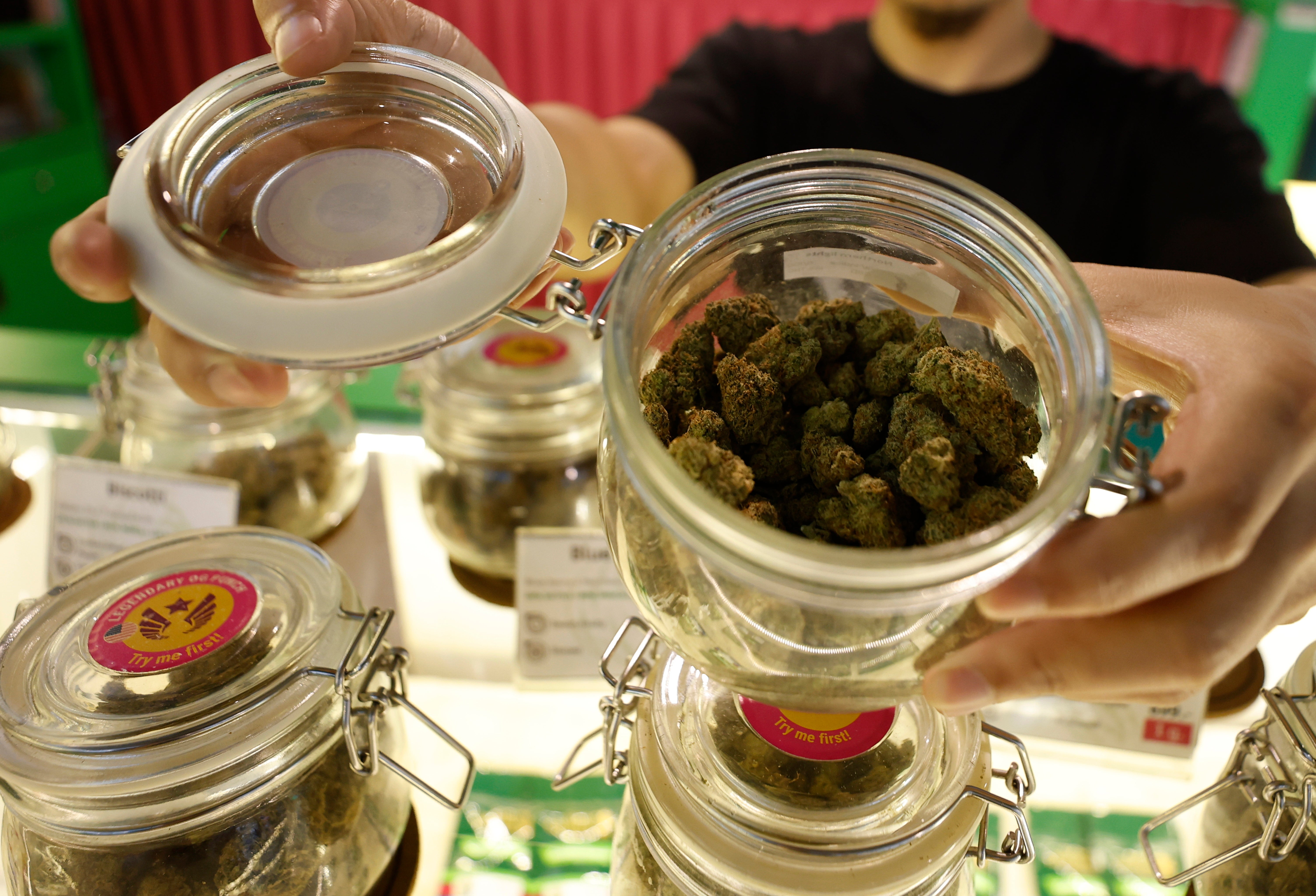Thailand decides not to re-criminalise cannabis as it eyes $1bn medicinal industry
Thai government to bring in new legislation to regulate use of cannabis

Your support helps us to tell the story
From reproductive rights to climate change to Big Tech, The Independent is on the ground when the story is developing. Whether it's investigating the financials of Elon Musk's pro-Trump PAC or producing our latest documentary, 'The A Word', which shines a light on the American women fighting for reproductive rights, we know how important it is to parse out the facts from the messaging.
At such a critical moment in US history, we need reporters on the ground. Your donation allows us to keep sending journalists to speak to both sides of the story.
The Independent is trusted by Americans across the entire political spectrum. And unlike many other quality news outlets, we choose not to lock Americans out of our reporting and analysis with paywalls. We believe quality journalism should be available to everyone, paid for by those who can afford it.
Your support makes all the difference.Thailand will regulate cannabis for medicinal use instead of re-listing the plant as a narcotic, the deputy prime minister said on Tuesday, in the government's U-turn on its previous policy.
Prime minister Srettha Thavisin had vowed to make cannabis illegal by the end of 2024, just two years after Thailand became one of the first countries in Asia to decriminalise marijuana.
The decriminalisation of marijuana without proper laws and guidelines led to an explosion of recreational use and the launch of tens of thousands of cannabis cafes, prompting public concern about its abuse.
Deputy prime minister Anutin Charnvirakul said the government would now discuss plans for a draft legislation to regulate the cannabis industry.
Mr Thavisin in May said cannabis would be re-listed as a narcotic but now has agreed that legislation was the appropriate step to take, according to the deputy prime minister.
"I thank the prime minister for considering this matter and deciding on issuing an act," Mr Anutin said following a meeting with the prime minister and health minister Somsak Thepsutin.

Thailand has seen rapid growth in the domestic retail sector for marijuana, an industry projected to be worth up to $1.2bn (£929m) by 2025.
"It will be a matter of law and debated in parliament where there is already a draft law," secretary-general to the prime minister Prommin Lertsuridej, who was also a part of the meeting, told Reuters.
"Whether it is a narcotic or not is up to parliament."
The decriminalisation of cannabis in 2022 was spearheaded by Mr Anutin's Bhumjaithai Party, whose stronghold is in the impoverished northeast where it promised farmers cannabis would be a new cash crop.
Nattabhorn Buamahakul, managing partner at government affairs consultancy, Vero Advocacy, said the latest development indicated there was now better coordination between parties in government on the complex cannabis issue.
"The policy reversal reflects greater alignment between the coalition parties when compared to last year when the government was formed," Ms Nattabhorn said.
A draft law on marijuana was submitted to the legislature under the previous administration but parliament was dissolved ahead of an election last year, without a vote taken.
It was not immediately clear whether steps would be taken to crack down on recreational cannabis use as Mr Srettha has advocated.
The proposed regulations to re-criminalise cannabis have already been set in motion but the deputy prime minister, who is a member of the Narcotics Control Board, has vowed to vote against the plan.
Join our commenting forum
Join thought-provoking conversations, follow other Independent readers and see their replies
Comments